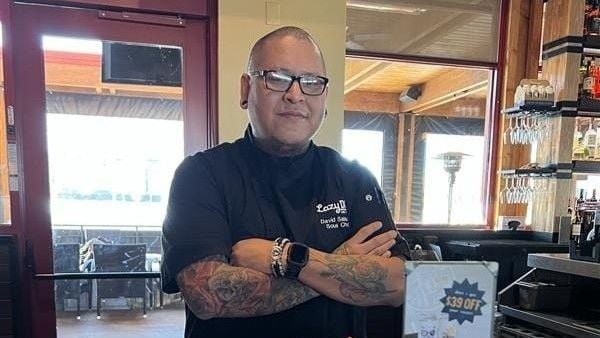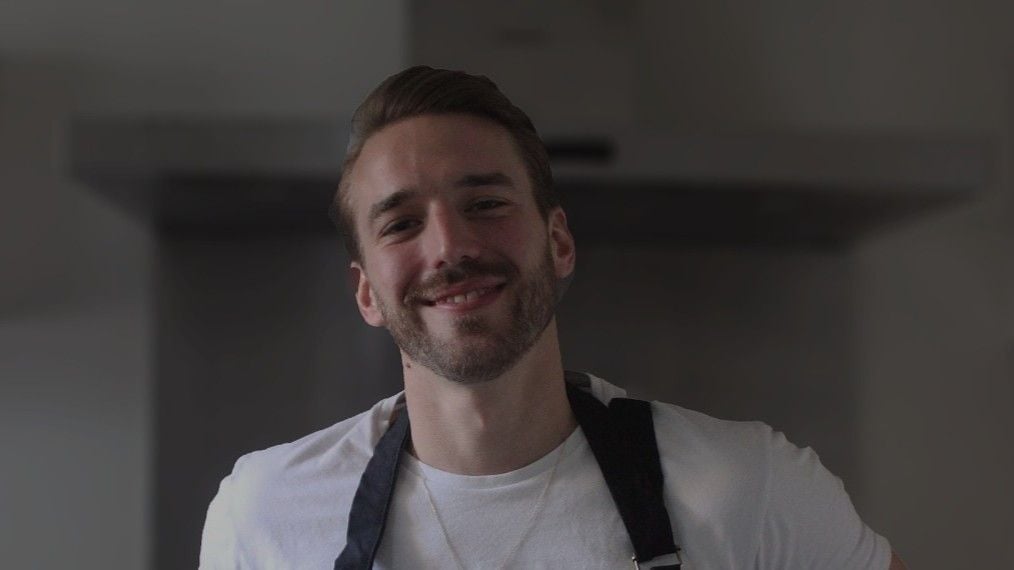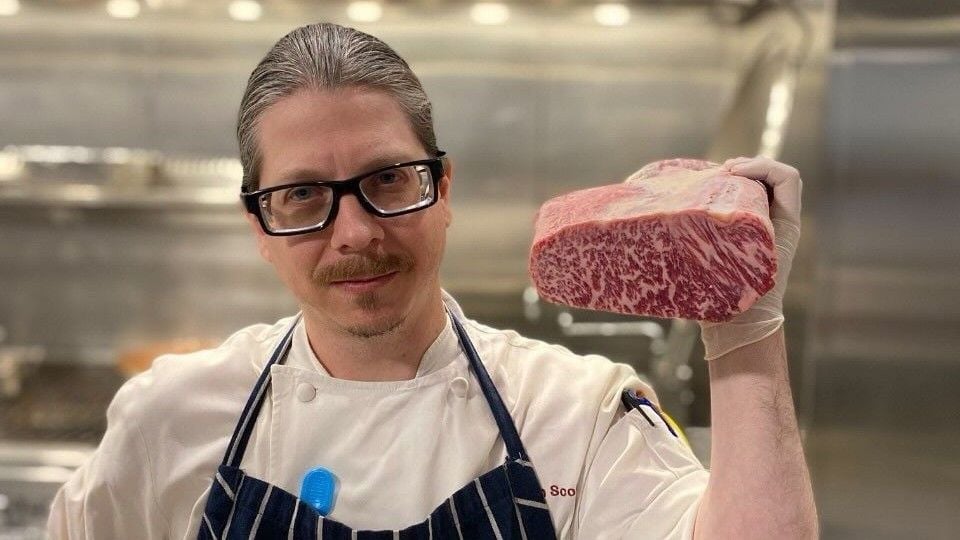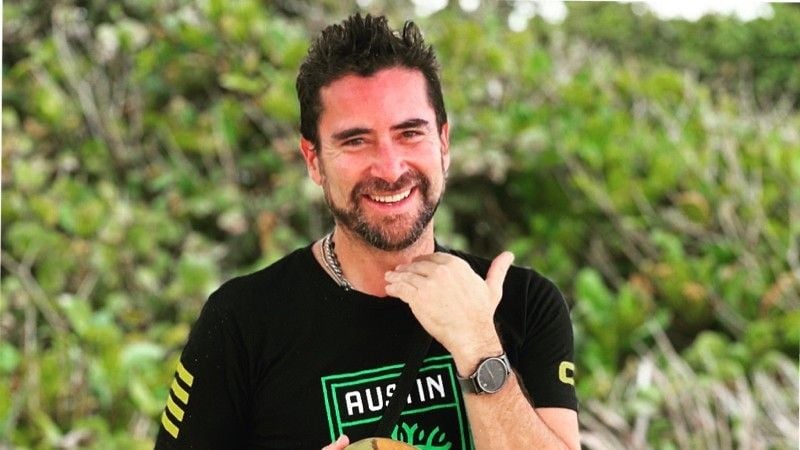David Salazar didn’t set out to become a Kitchen Manager. In fact, when he first started in the industry as a Busboy, he swore he’d never want to be “the guy with the clipboard.”
But over the years, through hard work, passion, and a deep respect for his craft, he evolved into a leadership role that allows him to do what he values most — help teams thrive from the inside out.
Now a Kitchen Manager at Gastamo Group, Salazar shares what it really takes to keep a kitchen running — not just efficiently, but with heart.
In this interview, Salazar talks about building trust, fighting burnout, and why soft skills matter just as much as knife skills. His journey is proof that great leadership isn’t about control. It’s about a lot of care.
You’ve worked in every part of the house — the front, the back, everywhere. What’s the most you’ve done at the front of house?
The most I ever did at the front was being a Busboy. That’s about it. I’ve always been more drawn to the back of house instead — to the kitchen, the food, the creativity.
But if I had advice for anyone just starting out in this industry, I’d say this: if you’re passionate about it, pursue it.
It’s hard. There’s a lot of uncertainty and a lot of challenges. But in the end, it’s absolutely worth it. You just have to love what you do.
Did you ever see yourself becoming a Kitchen Manager when you first started out?
Honestly? No. Back then, I always said I’d never want to be in a manager role because all the managers I knew just walked around with clipboards, micromanaging everyone — and that wasn’t me.
But here I am. I don’t carry a clipboard or micromanage, but I do understand now why that role matters. It’s about seeing the whole operation — food costs, labor, managing different personalities, pushing the team to improve, and building new leaders.
Some days, I miss being on the line, flipping pans, and cooking right alongside everyone. But I also know that in this role, I can help the whole kitchen run better and help people discover skills they didn’t even know they had.
Why do you think there’s such high turnover in this industry? And why do so many people seem to leave after just a year or two, especially after college?
I think a lot of it comes down to passion — or the lack of it. Speaking for myself, passion is everything. I genuinely love feeding people and creating something that makes them happy.
Honestly, if I feed you, I probably love you — it’s as simple as that. I love my guests, the creativity, the challenge of being the best guy on the line. I love flipping pans, plating dishes, and ensuring everything is perfect.
But not everyone feels that way. For a lot of folks, it’s just a job. And part of that comes from how the industry is viewed. I mean, you’ve got places that hire 16-year-olds fresh out of high school, and that sets this expectation that anyone can do this job with minimal training.
But real cooking — the kind where you design menus, create recipes, and care about every plate — takes dedication. Unfortunately, the industry is often looked down upon because of those entry-level perceptions.
People think, “Oh, it’s a restaurant job; anyone can do it.” But they don’t see the potential — the path to becoming a regional manager, VP, or even CEO of food and beverage. Those roles are there if you stay in the game and really care.
Do you think the kitchen environment has changed over the years? People often imagine it’s like The Bear — loud, chaotic, stressful. Is that still true?
It really depends on the kitchen and who’s running it. I’ve worked in those The Bear-style kitchens — constant yelling, go-go-go, get it done fast or else. But I’ve also been in calm, supportive kitchens where it’s like, “Hey, take your time, let’s get it right.”
A kitchen reflects the Chef, the leadership, and the team. So, when I run a kitchen, I try to mix both. I’m intense because I care, but I’m also empathetic. I try to understand what my staff needs, how they communicate, and how they work best.
How do you keep your team motivated and make sure they stay instead of just walking out one day?
For me, it’s all about building trust. Not just as part of the company, but personally — that’s my value. I’m not the clipboard guy who just checks recipes. I get in there.
If I see something off, I don’t yell or scold — I step in and say, “Walk me through this. Let’s do it together. Let’s figure out where it went wrong and fix it.”
When you’re willing to work alongside your team — not above them — that creates respect. That builds trust.
And trust keeps people around. Everywhere I’ve worked, people reach out later like, “Hey, you hiring? I’d love to work with you again.” That says something. You build that by being present, not distant.
What about the customers? You’re not front of house, but do you still try to connect with them?
Absolutely. You can connect through the food — and through humor. One of my favorite things is when I run food out and crack a little joke. Like, “Hey guys, I got your pizza, but I ate a slice... hope that’s okay,” or, “I stole two pepperonis off this one.”
Just something to make them laugh. Or if there’s a kid at the table wearing a baseball uniform, I’ll ask, “Did you win today?”… simple things like that.
That’s how you break the ice. Make customers feel comfortable. And you got to read the table. Some people don’t want to talk — they’ve had a long day. I get that. When I go out to eat, sometimes I don’t want to be bothered either.
So, you read the vibe. If they’re quiet, you bring what they need, wish them a good meal, and give them space. You check back once at the end to make sure everything’s okay. That awareness — that’s part of the job, too.
Sounds like soft skills — people skills — are just as important as cooking.
For sure. You can be the best Cook in the world, but if you can’t connect with your team or read your guests, you’re going to struggle. Kitchens, like restaurants, are built on relationships — whether that’s with your staff or your customers. You got to be human first.
Built to Last: Lessons in Leadership from the Kitchen
David Salazar’s journey is a reminder that great kitchens aren’t just made with sharp skills — they’re built through trust, care, and a deep respect for the people behind the line.
If you’re ready to start your own path in hospitality or take the next step in your career, explore opportunities on OysterLink — the job platform connecting passionate professionals with restaurants that value people as much as performance.



-1024x957.jpeg)
